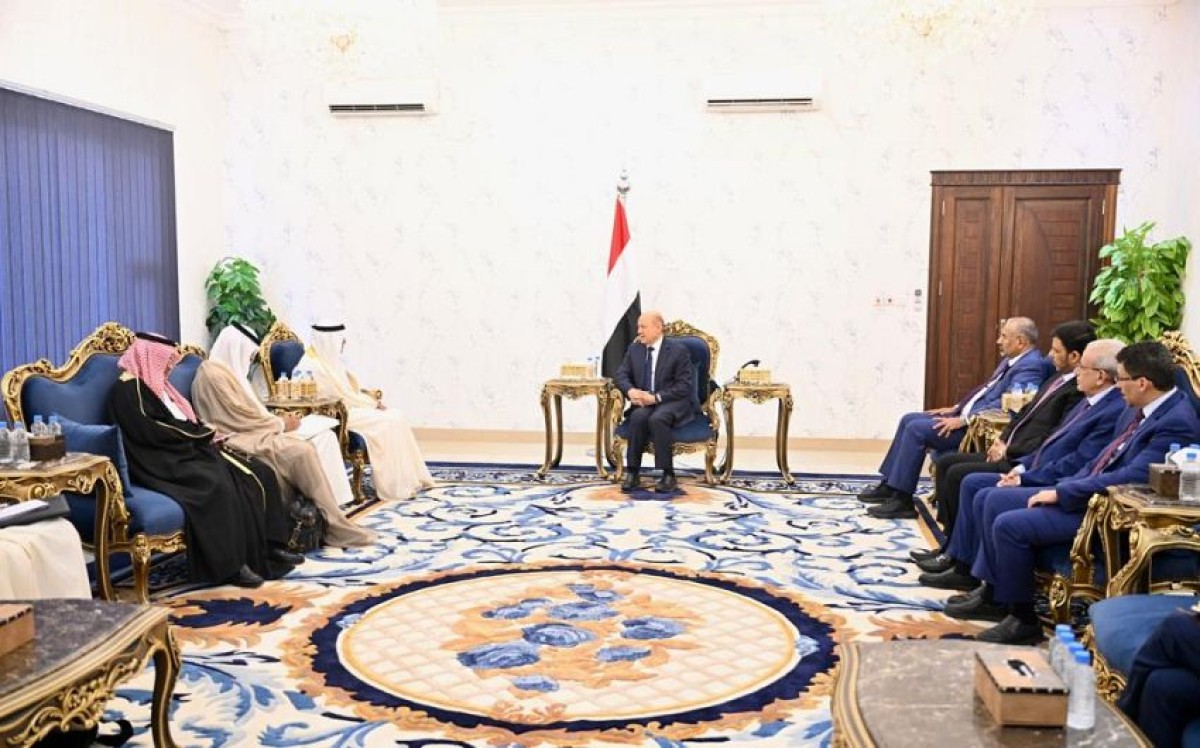For the first time in eight years.. Al-Budaiwi visits Aden to discuss launching a comprehensive political process in Yemen


The General Secretariat of the Gulf Cooperation Council announced today, Thursday, that the Secretary-General of the Council, Jassim Mohammed Al-Budaiwi, has begun an official visit to Yemen, the first by the Secretary of the Gulf Cooperation Council in eight years.
After his arrival in the temporary capital, Aden, Al-Budaiwi held discussions with the head of the Yemeni Presidential Leadership Council, Rashad Al-Alimi, and the Prime Minister of Yemen about “launching a comprehensive political process in Yemen,” according to the official Yemeni News Agency (Saba).
During the meeting, “the Yemeni developments were discussed, and developments related to the mediation efforts led by the Kingdom of Saudi Arabia to renew the truce and build on it to launch a comprehensive political process that meets the aspirations of the Yemenis for peace, stability and development.”
Alimi praised “the Gulf Cooperation Council’s support for the Presidential Leadership Council and the legitimate government, and all efforts aimed at bringing peace and stability to Yemen, in accordance with the terms of reference of the Gulf Initiative and its implementation mechanism, the outcomes of the national dialogue, and relevant international resolutions, especially Resolution 2216.”
For his part, Al-Budaiwi affirmed “the firm position of the Gulf Cooperation Council in supporting the efforts led by the United Nations to achieve comprehensive peace in Yemen based on the three terms of reference.”
Al-Budaiwi praised “the efforts made by the Kingdom of Saudi Arabia and the Sultanate of Oman, in a way that preserves Yemen’s sovereignty, unity, territorial integrity and independence.”
Al-Budaiwi also stressed “the support of the GCC countries for the Presidential Leadership Council to achieve security and stability in the country,” according to the agency.
The visit comes amid ongoing efforts to end the crisis, as the beginning of this year and until last April witnessed developments that called for optimism in the issue of stopping the war, especially after the reconciliation between Riyadh and Tehran, and the visit of a Saudi delegation for the first time to Sana’a, which has been controlled by the Houthi militia since 2014. After a coup against the legitimate government, which led to Riyadh’s military intervention.
But from the beginning of last May until today, it seems that the Yemeni crisis has stagnated without any significant progress during the past three months, except for ending part of the Safer oil tank dilemma, with talk of Houthi intransigence in the face of Omani mediation and UN and international proposals.
The Omani and Saudi delegations visited Sanaa, Yemen, which is under the control of the Houthis, last April, which was the first visit for the Saudis since the start of the war.
The two delegations met with the leaders of the Houthi militia, as a culmination of the Omani mediation efforts and the intense international efforts made by the United States, the United Nations, Britain, and the European Union to bring peace to Yemen.